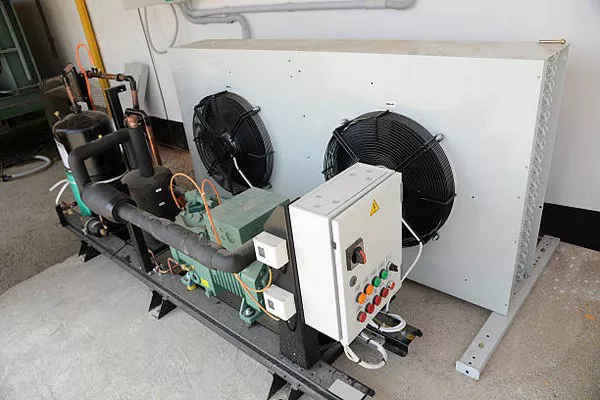In today’s world, where reliable electricity is crucial for both residential and commercial activities, power outages can disrupt daily life and business operations. Investing in a good generator can provide peace of mind during such times, ensuring continuity and comfort. However, with a multitude of options available, selecting the right generator can be challenging. This article aims to guide you through the process of choosing the best generator for power outages, considering factors such as power needs, fuel type, portability, and overall reliability.
Understanding Power Needs
The first step in choosing a generator is assessing your power requirements during an outage. Determine which appliances, devices, or systems you want to power. Make a list of essential items such as lights, refrigerators, heaters, air conditioners, and electronic devices. Note their wattage requirements, which can typically be found on the appliance labels or in the user manuals. Add up these wattages to estimate the total power capacity your generator needs to handle.
It’s advisable to choose a generator that can handle slightly more than your estimated total wattage to accommodate any additional needs or unexpected power surges. This extra capacity can prevent overloading the generator and ensure all essential devices remain powered during an outage.
Types of Generators
Generators are broadly categorized into portable generators and standby (or stationary) generators, each suited for different applications.
Portable Generators: These are versatile units that can be moved around and are typically fueled by gasoline, propane, or diesel. They are ideal for residential use, camping, or powering small appliances and tools during outages. Portable generators are available in various sizes and power capacities, making them suitable for different needs.
Standby Generators: Installed permanently outside a home or business, standby generators are connected directly to the electrical system. They are powered by natural gas or propane and can automatically turn on during a power outage. Standby generators are more expensive than portable units but offer seamless, uninterrupted power for extended periods.
Fuel Type and Availability
The fuel type of a generator is a critical consideration. The most common fuel options for generators are gasoline, propane (LPG), diesel, and natural gas.
Gasoline Generators: These are widely available and easy to use but may require fuel stabilizers for long-term storage. Gasoline can be less stable during storage compared to other fuel types.
Propane Generators: Propane is clean-burning and can be stored for long periods without degradation. Propane generators are often quieter and emit fewer emissions than gasoline generators.
Diesel Generators: Known for their fuel efficiency and durability, diesel generators are suitable for heavy-duty applications. However, diesel fuel can be less readily available than gasoline or propane.
Natural Gas Generators: Connected directly to a natural gas line, these generators offer a continuous fuel supply without the need for refueling. They are a popular choice for standby generators.
Choose a generator that aligns with the fuel availability in your area and your preference for storage and maintenance.
Considerations for Home Use
For homeowners, selecting a generator involves additional factors beyond power output and fuel type:
Noise Level: Generators can be noisy, so consider quieter models, especially if you live in close proximity to neighbors.
Portability: If you anticipate needing power in multiple locations or during outdoor activities, a portable generator with wheels and handles is essential for easy transportation.
Runtime and Fuel Efficiency: Look for generators with longer runtimes per tank of fuel to minimize refueling needs during extended outages.
Start-up Mechanism: Recoil start (pull cord) generators are standard but can be challenging for some individuals. Electric start models are easier to operate and require less physical effort.
Safety Features: Opt for generators with low-oil shutoff, overload protection, and automatic voltage regulation to ensure safe and reliable operation.
Commercial and Industrial Considerations
Businesses and industries have unique power requirements that demand robust and dependable generators:
Output Capacity: Assess the peak and continuous power needs of critical equipment and systems to determine the appropriate generator size.
Emissions Compliance: Depending on location and industry, choose generators that meet local emissions regulations to minimize environmental impact.
Installation and Maintenance: Consider the ease of installation and ongoing maintenance requirements, especially for standby generators intended for continuous use.
Remote Monitoring and Control: Some advanced generators offer remote monitoring capabilities, allowing businesses to track performance and manage maintenance proactively.
Reliability and Brand Reputation
When investing in a generator, prioritize reliability and durability. Choose reputable brands known for producing high-quality generators backed by solid warranties and reliable customer support. Reading customer reviews and seeking recommendations from professionals can help in selecting a trustworthy generator model.
See Also What Watt Generator Do I Need To Run A Refrigerator
Conclusion
Selecting the best generator for power outages involves a careful assessment of your specific needs, including power requirements, fuel preferences, portability, and reliability. Whether you’re a homeowner preparing for occasional outages or a business requiring uninterrupted power, understanding these considerations will guide you towards making an informed choice. By investing in the right generator, you can safeguard against the inconvenience and disruption caused by unexpected power failures, ensuring comfort, security, and continuity during outages.

